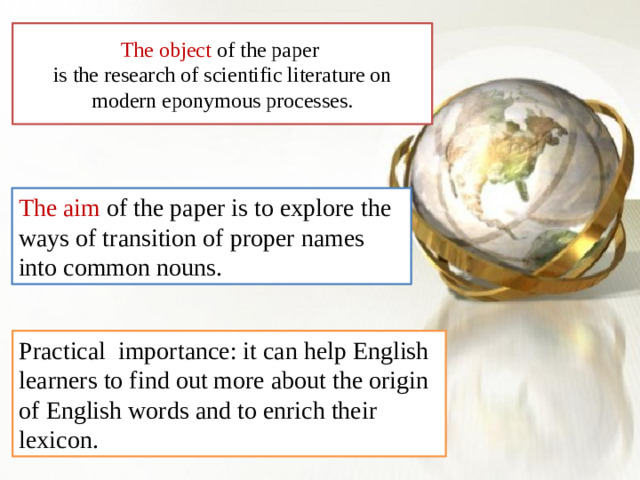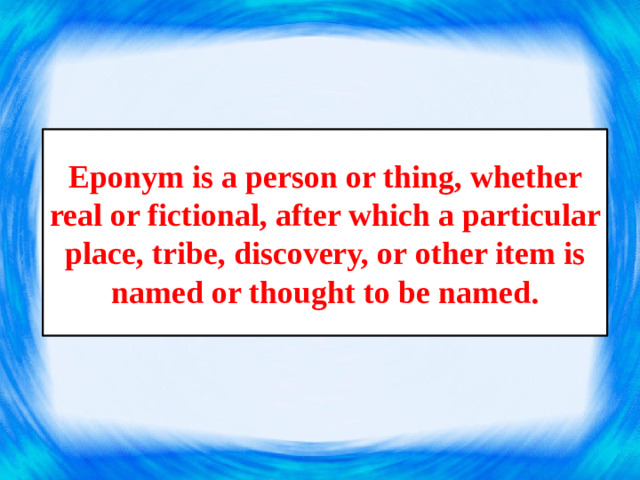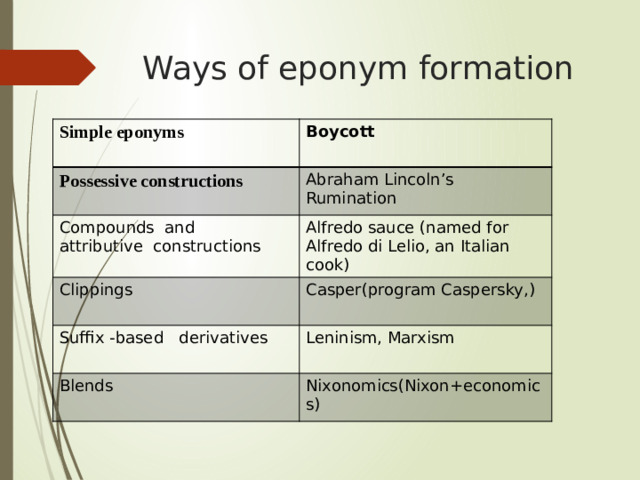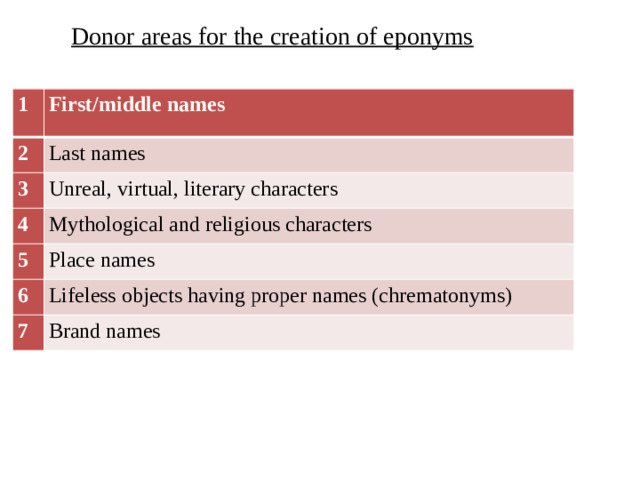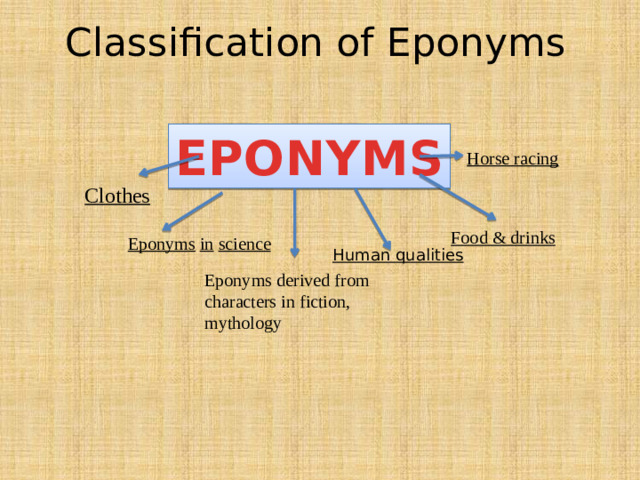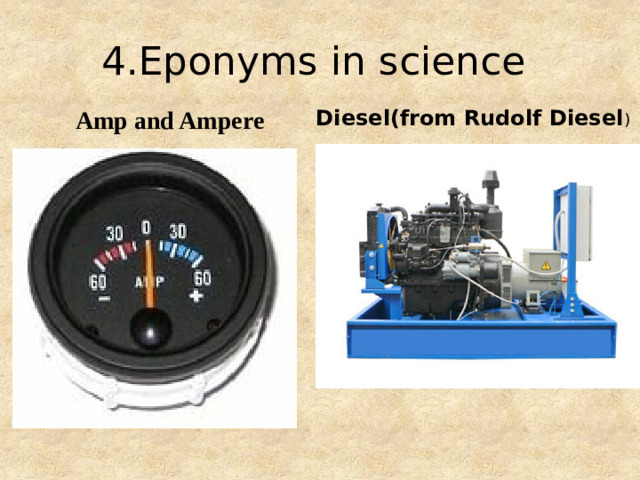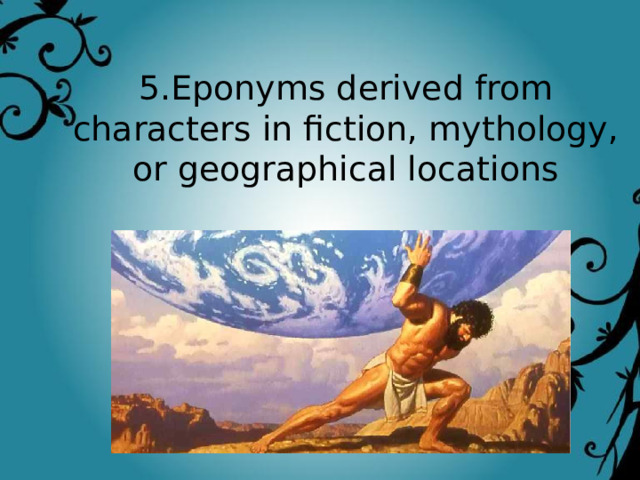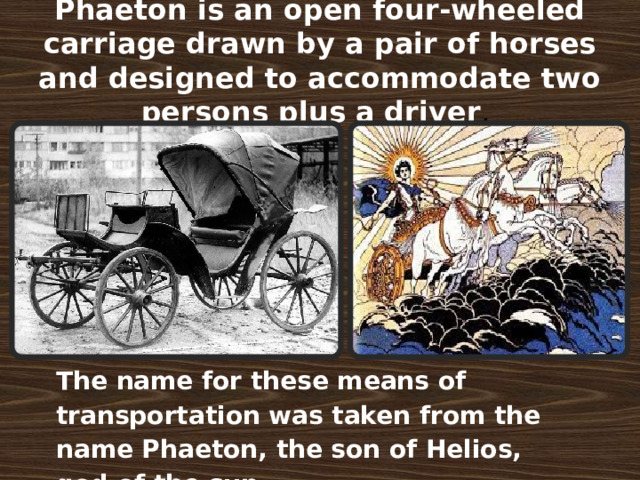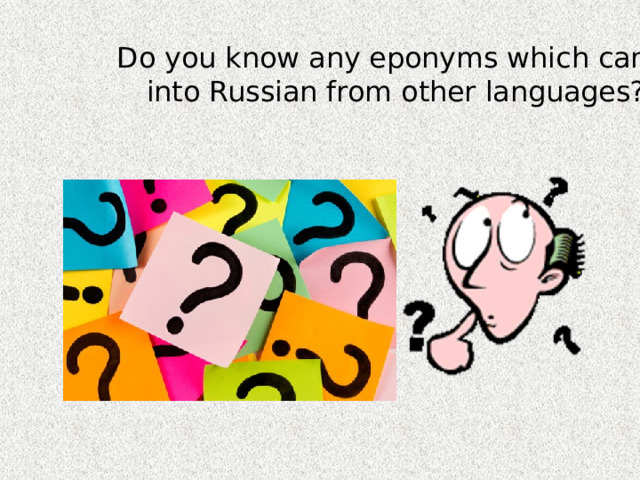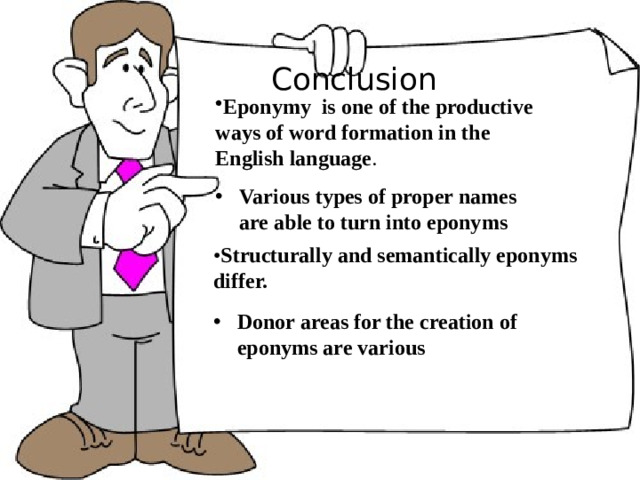Данная работа посвящена эпонимии. Эпонимы являются специфичным пластом словарного запаса языка. Они отражают культуру народа, его историю, могут многое рассказать нам о национальном характере.Объектом исследования данной работы является научная литература о современном эпонимическом процессе.Цель исследования – способы перехода имен собственных в имена нарицательные
Создайте Ваш сайт учителя Видеоуроки Олимпиады Вебинары для учителей
Эпонимы в современном английском языке
Вы уже знаете о суперспособностях современного учителя?
Тратить минимум сил на подготовку и проведение уроков.
Быстро и объективно проверять знания учащихся.
Сделать изучение нового материала максимально понятным.
Избавить себя от подбора заданий и их проверки после уроков.
Наладить дисциплину на своих уроках.
Получить возможность работать творчески.
Просмотр содержимого документа
«Эпонимы в современном английском языке»
Похожие файлы
Полезное для учителя
Распродажа видеоуроков!
1860 руб.
2660 руб.
1760 руб.
2510 руб.
1940 руб.
2770 руб.
1940 руб.
2770 руб.
ПОЛУЧИТЕ СВИДЕТЕЛЬСТВО МГНОВЕННО
* Свидетельство о публикации выдается БЕСПЛАТНО, СРАЗУ же после добавления Вами Вашей работы на сайт
Удобный поиск материалов для учителей
Проверка свидетельства


